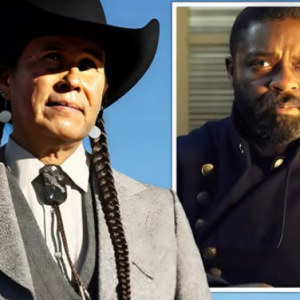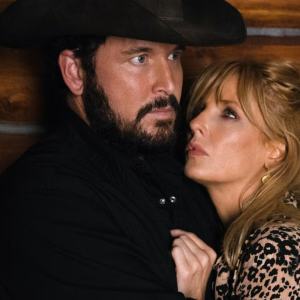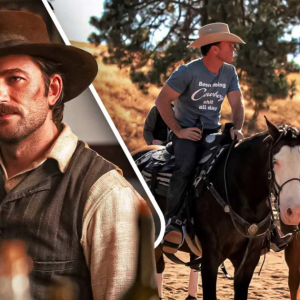The sprawling saga of the Dutton family, brought to life in Taylor Sheridan’s critically acclaimed Yellowstone universe, has captivated audiences with its raw portrayal of the American West. While the flagship series anchors itself in the present-day challenges of maintaining a Montana ranching empire, its prequel, 1883, delved deep into the arduous journey that established the Dutton lineage. This single-season masterpiece chronicled the family’s perilous trek across the Great Plains, seeking a new life amidst the unforgiving realities of 19th-century America. With its poignant, often heartbreaking conclusion, 1883 left an indelible mark, but no direct continuation of its specific narrative has followed. Surprisingly, a compelling “spiritual sequel” emerges not from Sheridan’s own prolific pen, but from Netflix’s 2017 Western miniseries, Godless.
Set in 1884, a mere year after the events of 1883 conclude, Godless unfolds a story that, while entirely separate in terms of characters and direct plot, mirrors the spirit and thematic depth of its Dutton-centric predecessor. Godless transports viewers to La Belle, New Mexico, a mining town uniquely transformed by tragedy: most of its male population has been wiped out in a mining accident, leaving the community predominantly run by women. This premise immediately sets it apart, yet its unflinching depiction of frontier life, its rich character development, and its commitment to authenticity resonate profoundly with the world 1883 so meticulously crafted.
One of the most striking connections between the two series lies in a pivotal moment from 1883. As Shea Brennan (Sam Elliott), the seasoned and world-weary guide leading the wagon train, grapples with the myriad tribulations faced by his charges—disease, bandits, extreme weather—he suggests a crucial pivot. Towards the latter part of their journey, facing insurmountable obstacles on the path to Oregon, Brennan proposes diverting the wagon train to Colorado. His rationale was sound: they could spend the winter in the mountains, potentially settling in nascent mining towns to regroup and survive. Had this alternative path been taken, the surviving members of the 1883 party could very well have found themselves in a mining community by the following year, precisely the setting Godless explores. This conceptual overlap creates a fascinating “what if” scenario, lending Godless an almost canonical feel as a potential, albeit imagined, continuation of the pioneer experience.
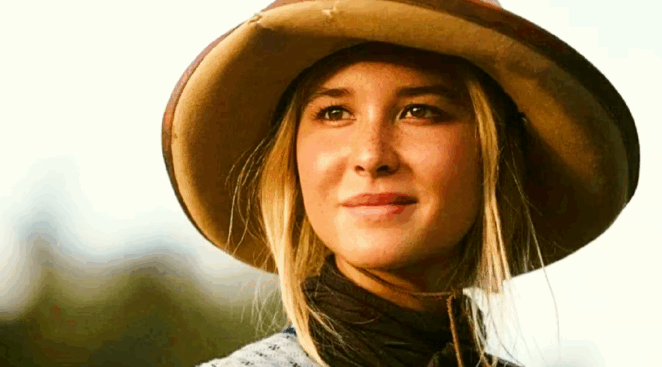
Beyond this intriguing temporal and geographical alignment, both 1883 and Godless share a foundational commitment to portraying the American West with a refreshing degree of diversity and raw realism. They eschew the simplistic hero-and-villain narratives often found in classic Westerns, instead presenting a nuanced tapestry of humanity. 1883 notably engages with various Native American tribes, including the Comanche, Lakota, and Crow, depicting their complex interactions with the westward-expanding settlers—sometimes adversarial, sometimes cooperative, always imbued with a sense of historical gravitas. Similarly, Godless embraces diversity, featuring prominent Paiute characters such as Truckee (Samuel Marty) and Iyovi (Tantoo Cardinal), who are integral to the narrative. This dedication to including indigenous perspectives and other marginalized voices enriches both series, painting a far more complete and authentic picture of the frontier experience, acknowledging the varied peoples who shaped and traversed it.
Perhaps the most compelling shared element, and a cornerstone of their appeal, is the prominence of exceptionally strong and complex female characters. 1883 is undoubtedly carried by Isabel May’s phenomenal portrayal of Elsa Dutton. Her journey from a spirited, somewhat naive adolescent to a hardened, resilient survivor is the emotional core of the series. Elsa embraces the untamed wilderness with fierce independence, navigating not only the physical dangers but also the profound emotional challenges of love, loss, and self-discovery. Complementing her is Margaret Dutton (Faith Hill), the stoic matriarch whose quiet strength and unwavering resolve anchor the family through unimaginable hardship. Both women defy conventional expectations of femininity in the 19th century, proving themselves just as capable, if not more so, than their male counterparts in facing the West’s brutal realities.
Godless likewise centers its narrative around formidable women who have been forced by circumstance to forge a new existence. Mary Agnes McNue (Merritt Wever), the no-nonsense widow and sister of the town’s sheriff, steps into a leadership role with pragmatism and grit, embodying the strength required to maintain order and community in a lawless land. Michelle Dockery’s Alice Fletcher, a reclusive rancher who finds her life entwined with the series’ central conflict, demonstrates remarkable resilience, intelligence, and an ability to adapt to extreme peril. In a town where traditional male roles are largely absent, McNue and Fletcher, along with the other women of La Belle, rise to the occasion, proving their mettle and demonstrating an unyielding spirit that mirrors the pioneering endurance of the Dutton women. Their collective stories challenge and expand the traditional Western genre, offering powerful narratives of female agency and collective survival.
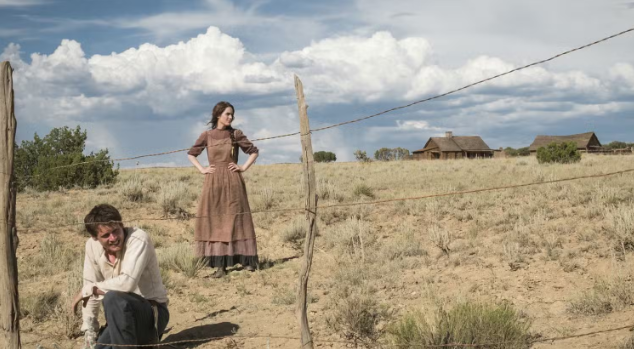
While both series unflinchingly depict the brutality of the era, their narrative conclusions offer a stark contrast. 1883, true to its role as a foundational story for the Yellowstone saga, concludes with an objectively heartbreaking outcome. Many of its most captivating characters, including the beloved Elsa Dutton, succumb to the harsh circumstances of the time, their sacrifices serving to explain the deep roots and enduring struggle of the Dutton family on their land. It’s an ending that is emotionally devastating but serves its purpose in setting up the legacy that fuels Yellowstone.
Godless, while equally ruthless in its depiction of violence and loss, offers a more cathartic and ultimately satisfying conclusion for its audience. Despite significant peril and bloodshed, many of the fan-favorite characters, particularly the core female leads, survive the climactic confrontation. Their individual stories intersect in meaningful ways, culminating in victories that, while hard-won and tinged with the lingering scars of the frontier, feel earned and hopeful. Godless does not shy away from the brutality of its world, but it prioritizes the narrative satisfaction of seeing its resilient characters emerge, if not unscathed, then certainly triumphant in their own right. This difference in ending philosophy might make Godless even more enjoyable for some viewers seeking a resolution that, while earned through struggle, leans towards enduring human spirit rather than profound tragedy.
In essence, Godless serves as a magnificent companion piece to 1883. It’s a testament to the enduring appeal of the Western genre when approached with historical fidelity, rich character development, and a willingness to explore diverse perspectives. Both series contribute significantly to the modern redefinition of the Western, moving beyond simplistic tropes to offer profound explorations of courage, survival, and the human spirit against the backdrop of an untamed land. For fans who appreciated the raw beauty and emotional depth of 1883, Godless offers not just a plausible narrative extension, but a deeply satisfying and equally compelling journey into the heart of the American frontier.


